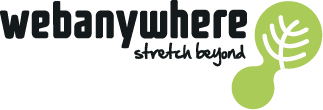By: Jessica Arenz
In 2017, we’ve seen the corporate learning world change dramatically. During our exhibition at DevLearn this year, we had a lot of conversations with learning and development professionals, as well as other vendors of next generation learning tools, which helped us put these disruptions in perspective. With the new year approaching fast, our goal is help everyone make sense of them. Delivering on a compelling, digital learning experiences is critical to business success, as employees are learning like never before.
Make 2018 your most powerful and promising year yet with these 8 corporate learning disruptions.
#1 The LMS is no longer the center of corporate learning
Learning management systems (LMSs), largely created in the early 2000s, were originally designed around SCORM standards to track instructor-led training and online learning. Now, they’re becoming less relevant for modern learning. Due to the explosion of video and a myriad of machine-curated content, most LMSs simply haven’t kept up.
#2 Goodbye SCORM, hello xAPI
Although SCORM is still somewhat relevant, it can’t capture the entire picture of the learning taking place like xAPI can. xAPI (also called Tin Can or Experience API) allows you to track all digital consumption, like clicks on your desktop or phone or articles read, and record it in a Learning Record Store (LRS). This technology helps free us from traditional LMSs and gives you the opportunity to track all learning at work. You can read more about the differences between SCORM and xAPI in other blog post.
#3 Microlearning isn’t replacing macrolearning
Most learning and development professionals are probably familiar with microlearning, which is chunks of information about 10 minutes or less that are easy for learners to consume, like a video or blog. Although microlearning is extremely relevant, we tend to forget that there’s still a need for macrolearning when learners need to learn a new domain, which may be an instructor-led course, MOOC or series of videos (like on Lynda.com). Both microlearning and macrolearning both work together at different times as the learner progresses in their job.
#4 Searchable, social, personalized learning content
According to a study by Bersin, workers are using 19% of their day searching and gathering information and 14% communicating and collaborating while being bombarded with emails and other distractions. The need for workers to be able to easily search for what they need has bred new platforms that integrate tools for content discovery, communication and messaging in the flow of their daily work. Some of these tools also create personalized learning paths, as we now recognize that learning is unique to each employee.
#5 Culture, career and coaching is here to stay
Corporate culture continues to drive everything we do. According to Bersin “People at work must have time to learn, they must feel their new skills will be valued, we must take time for discussion and reflection, and managers must give people space and freedom to discuss mistakes, ask questions, and often experiment with new ideas.”
#6 The future of learning is an ecosystem
As stated before, a new architecture or framework is being set for corporate learning. An LMS is no longer center, and there are various other tools and platforms that play a huge part in the learning taking place at work, both formally and informally. All of these parts create a “Learning Ecosystem,” which is a network of people, resources, and technology from both inside and outside the organization, all of which have an impact on learning. Companies are embracing various kinds of digital learning content, technology and platforms to ensure they’re capturing all the learning taking place.
#7 New breeds of vendors to consider
The learning technology market is changing alongside the changes in corporate learning. As companies move toward an employee-centric model and embrace many forms of content and tools to support a “learning ecosystem,” new breeds of vendors are emerging that offer specialized platforms, content libraries and delivery tools to meet these new corporate learning needs. LMSs still provide a corporate infrastructure, and LMS vendors are also making major advancements to modernize as well.
#8 New skill sets for L&D professionals
The new changes to the learning landscape require new changes to the skill sets of learning and development professionals. It’s no longer enough to call yourself an Instructional Designer by career, there’s now a focus on experience design, learner journey maps and curation. Traditional L&D skills include consulting, learning evaluation, instructional design, LMS implementation, learning evaluation and content development. New/enhanced skills include data analysis, content curation, UI/UX design, app and multimedia development, to name a a few.
We invite you to check out our services to see if there’s anything we can help you with! Webanywhere provides open source learning platforms and corporate eLearning solutions, and can partner with you to make sure 2018 is your best year yet.

Jessica Arenz brings out the best of both worlds as an Instructional Designer and Marketing Executive at Webanywhere. She’s passionate about proper brand messaging and retail training and development. Throughout her career she has worked on eLearning for companies like Walmart, Sam’s Club, Kroger and Saks Fifth Avenue, to name a few. Jessica is one of many talented individuals on our team ready to collaborate with you on your next learning solution.


